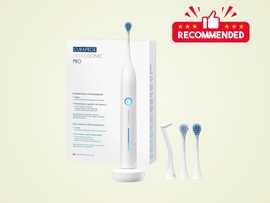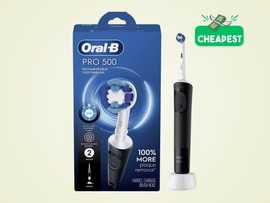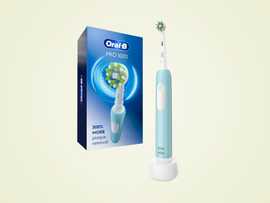When it comes to maintaining oral hygiene, especially for those with sensitive teeth, choosing the right electric toothbrush is crucial. The Philips Sonicare has been a popular choice, and for good reason. This review will explore the Philips Sonicare's features, focusing on brush softness, pressure sensitivity, battery life, cleaning modes, and noise level, to help you determine if it's the best fit for your sensitive dental needs.
Brush Softness
For those with sensitive teeth, the softness of the brush head is a primary concern. Philips Sonicare is often praised for its gentle approach, thanks to its soft bristles and the unique motion of the brush. Unlike standard oscillating brushes, Sonicare uses a sweeping motion that is less abrasive on sensitive gums and teeth while still effective in removing plaque. Although some users have expressed difficulty in finding specific soft/sensitive brush heads in certain regions, the standard heads provided are generally well-received for their gentle cleaning action.
Pressure Sensitivity
One of the standout features of the Philips Sonicare is its pressure sensor technology. This feature is incredibly beneficial for users with sensitive teeth as it prevents the aggressive brushing that can lead to further dental issues. The sensor alerts you when too much pressure is being applied, ensuring that you maintain gentle contact to protect your enamel and gums. This feature is particularly highlighted in models like the Sonicare 4100, which is recommended for those who might be prone to brushing too hard.
Battery Life
Philips Sonicare scores high marks on battery life. Many users report that the toothbrush holds a charge for an impressive 4 to 6 weeks with regular use, which involves brushing twice a day for two minutes each session. This long battery life is ideal for travelers or those who prefer not to worry about frequent recharging. Moreover, the Sonicare is equipped with multi-voltage capabilities, making it a suitable option for international travel, unlike some of its competitors.
Cleaning Modes
The various cleaning modes available on the Philips Sonicare make it a versatile choice for users with different dental needs. While the basic models come with standard cleaning modes suitable for daily use, higher-end models offer settings like gum care, deep clean, and even modes specifically for sensitive teeth. These specialized modes adjust the intensity and timing of brushing to cater to specific oral health needs, enhancing the overall effectiveness of dental care routines.
Noise Level
Electric toothbrushes are often criticized for their noise levels, but the Philips Sonicare is noted for its relatively quiet operation. This feature is particularly appreciated by users who may find the loud noise of other electric toothbrushes to be bothersome or disruptive. The quiet functioning of the Sonicare enhances user comfort, making it a more pleasant experience, especially for morning and night routines.
Conclusion
The Philips Sonicare electric toothbrush stands out as a highly effective tool for maintaining oral health, particularly for those with sensitive teeth. Its gentle brush heads, intuitive pressure sensor, long battery life, multiple cleaning modes, and quiet operation make it a top contender in the market. While individual preferences and needs can vary, the Sonicare offers a comprehensive package that addresses many common concerns associated with dental sensitivity and hygiene. Whether you're dealing with sensitive teeth or simply looking for a reliable electric toothbrush that offers thorough cleaning without discomfort, the Philips Sonicare is worth considering.




